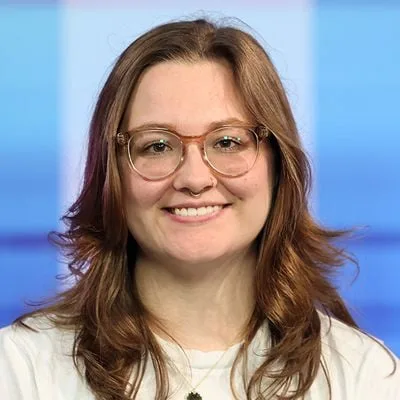
Speaker of the House Ben Toma speaking on the floor of the Arizona House of Representatives at the Arizona State Capitol building. Toma is also the chair of the Study Committee on Empowerment Scholarship Accounts Governance and Oversight. Photo by Gage Skidmore.
After months of delay and years of abuse, Arizona’s universal voucher program will finally receive a small dose of oversight this week.
The Arizona State House committee created to look into the state’s Empowerment Scholarship Accounts program has its first meeting scheduled for Sept. 20, where they will gather information to ensure the program and its budget are being administered properly.
The committee was created in May by House Speaker Ben Toma and former House Minority Leader Andres Cano in order to solicit information from experts, parents, and the Arizona Department of Education that would allow the Legislature to ensure the program is running as intended. After meeting, the committee is expected to release a report of its findings by Dec. 31 of this year, after which, the committee will dissolve.
Why Now?
In 2022, the ESA program was expanded to include all Arizona K-12 students, as well as preschool students with a disability. Since then, nearly 50,000 students have been added to the program.
With the expansion came problems like long wait times for funds, abrupt changes to procedures, and a data breach that led to the resignation of the program’s director. Additionally, the program lacks data on the performance of students in the program, raising concerns about whether or not it actually benefits students.
A memo released in July by the Governor’s Office estimated that the ESA program would cost the state $943 million annually. However, State Superintendent Tom Horne disputed the estimate and argued that the program would actually save taxpayers money.
Little Insight Into Oversight Committee
According to Democratic Rep. Nancy Gutierrez, the committee’s first meeting has been rescheduled multiple times with little communication.
“I was hoping that this committee would have started in June; that’s when I was appointed to it,” Gutierrez said. “And as a teacher, I have lots of time over the summer, but this meeting has been scheduled and rescheduled a couple of times now.”
According to an agenda released Friday, Toma and Rep. Beverly Pingerelli will be representing the Republicans on the committee and Rep. Judy Schwiebert will join Gutierrez in representing the Democrats. Additional members include Gov. Katie Hobbs, Matt Beienburg of the Goldwater Institute, former State Treasurer Eileen Klein, Matthew Ladner of the Arizona Chamber Foundation and the executive director of the ESA program, John Ward.
Hobbs had the option to appoint a designee to serve in her place on the committee, but that appointment was rejected, according to Gutierrez.
Hobbs’ office and a spokesperson for the House Republican Caucus did not respond to requests for comment.
Before the members of the committee were announced publicly on Friday, Gutierrez said she wasn’t made aware of who she would be serving with, aside from her Democratic counterpart, Schwiebert. She said she’s worried how the committee hearing will go based on the issues she’s encountered so far.
“I am definitely determined to listen to what’s presented and then also present facts that we have and how this is affecting our state and who is actually using this money,” Gutierrez said. “So my hope is that no, it will not be polarized, but when I do see who might be on the committee, it will be difficult.”
‘We Need to Get Something Done’
Gutierrez and fellow Democratic Rep. Laura Terech, who previously worked as a kindergarten teacher, said they’re both hoping to get more information from the committee about the program—especially how much it’s costing the state and whether students are actually benefiting.
“There’s been so much resistance to getting any kind of window into ESA and that time has really shifted, we’re moving out of that.” Terech said. “We would be very wise to be responsible to our taxpayers and have a more full picture of what is happening here so that we can make the best planning decisions possible and ensure that we’re taking care of our students.”
Gutierrez said she hopes the committee moves forward as planned, despite the roadblocks. However, whether or not any changes will be implemented as a result of their findings is uncertain: while Gutierrez hopes the committee will provide the public with as much insight into the ESA program as possible, the Republican-controlled legislature that established it did not give it the power to make any changes to the program itself.
“We need to get something done,” Gutierrez said. “We need to get some compromises happening. Our state budget depends on it.”
The committee hearing is scheduled for 2 p.m. on Wednesday and is open to the public, both for in-person attendance and to view online. Members of the public will be able to testify during the hearing.

He said what? 10 things to know about RFK Jr.
The Kennedy family has long been considered “Democratic royalty.” But Robert F. Kennedy, Jr.—son of Robert F. Kennedy, who was assassinated while...

Here’s everything you need to know about this month’s Mercury retrograde
Does everything in your life feel a little more chaotic than usual? Or do you feel like misunderstandings are cropping up more frequently than they...

Arizona expects to be back at the center of election attacks. Its officials are going on offense
Republican Richer and Democrat Fontes are taking more aggressive steps than ever to rebuild trust with voters, knock down disinformation, and...

George Santos’ former treasurer running attack ads in Arizona with Dem-sounding PAC name
An unregistered, Republican-run political action committee from Texas with a deceptively Democratic name and ties to disgraced US Rep. George Santos...





